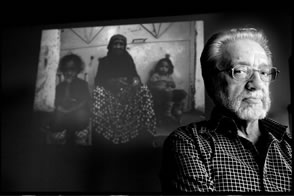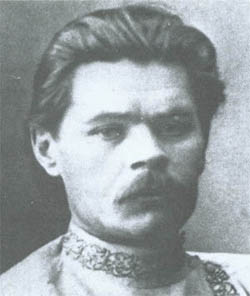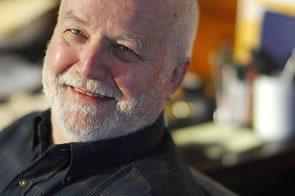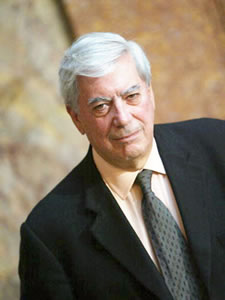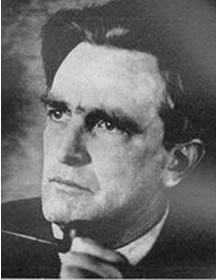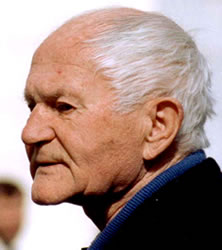De Vlaamse roman- en toneelschrijver Walter van den Broeck werd geboren in Olen op 28 maart 1941. Van den Broeck richtte samen met Frans Depeuter en Robin Hannelore in 1965 het tijdschrift Heibel op, dat kritisch, humoristisch en polemisch gevestigde literaire waarden op de korrel nam. Hij werd, na een aantal autobiografisch getinte romans, bekend met het geëngageerde toneelstuk Groenten uit Balen dat geïnspireerd was door waargebeurde feiten en een staking en zijn gevolgen. Zijn grote doorbraak kwam met de roman Brief aan Boudewijn uit 1980, waarbij hij fictief de toenmalige Belgische koning een rondleiding gaf door zijn eigen huis, leven en omgeving, en zo de koning een beeld schetste van Vlaanderen en meer bepaald van de Kempen van onderaf. Dit boek kende een voortzetting met het vierdelige Beleg van Laken (tot Het Leven na Beklag). Uit het eerste deel van deze cyclus werd het succesvolle toneelstuk De Tuinman van de Koning gedestilleerd. Walter van den Broeck won de Staatsprijs voor Toneel in 1982 en de Staatsprijs voor Proza in 1993.
Uit: Adem even in, adem even uit
“ Mijn vriendjes die op hun veertiende uit werken gingen, hadden na hun eerste werkdag een hele transformatie ondergaan. Ze droegen blauwe werkmanskleren en zwarte werkmansschoenen, snoten hun neus in werkmanszakdoeken ter grootte van een tafellaken, en diepten uit hun broekzak hun eerste pakje Groene Michel op. Van al die statussymbolen was het laatste het meest indrukwekkende. Wie nog school liep, diende in het grootste geheim te roken: achter bomen en struiken, in portieken en fietsenstallingen – afijn, precies op dezelfde plaatsen waar hij vuile manieren bedreef. Zij die uit werken gingen, mochten dat van de ene op de andere dag openlijk doen – roken bedoel ik. Roken stond net zoals de lange broek voor volwassenheid. Roken was zelfs sportief volgens de advertentie van Visa. De relatie roken/gezondheid werd overigens pas voor het eerst begin jaren zestig gelegd in één van Engelands toonaangevende medische bladen.
‘Roken ongezond? Wat zullen ze nog allemaal verzinnen?!’ riep mijn vader uit, hoestend zijn zesendertigste peuk van die avond uitdrukkend.
Opdat de roker door die jobstijding niet in paniek zou raken, werd door de bezorgde fabrikanten prompt een filter geplaatst tussen hem en zijn sigaret, en klaar was wederom kees. Roken was voortaan weer sportief en zelfs hygiënisch! Maar de harden onder ons, de voortrekkers van de tabaksconsumptie zeg maar, wilden van geen filters weten en dus verscheen naast de Groene Michel de nog zwaardere Blauwe Johnson op de markt. Kwestie van op tijd en stond te voelen dat je een stel longen had, en waar die zich precies bevonden.”
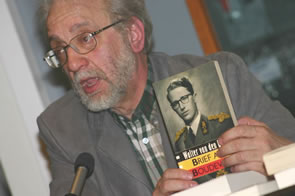
Walter van den Broeck (Olen, op 28 maart 1941)
De Peruviaanse schrijver Mario Vargas Llosa in Arequipa werd geboren op 28 maart 1936. Hij is een van de leidende denkers en schrijvers van Latijns-Amerika. Vargas Llosa schrijft maatschappelijk betrokken romans in een vernieuwende stijl. Het leven wordt beschreven als een nooit aflatende strijd om het bestaan. In het werk van de Peruviaan spelen steeds geweldsfiguren een rol, met name militairen. Verder schrijft hij toneelstukken en essays, en is journalist en literair criticus. In 1990 was Vargas Llosa kandidaat bij de presidentsverkiezingen in Peru met een sterk liberaal programma. Hij verloor de verkiezingen onverwacht van Alberto Fujimori. In het autobiografische boek De vis in het water heeft Vargas LLosa hierover geschreven.
Uit: The Feast of the Goat (Vertaald door Edith Grossman)
“Her parents had done her no favor; her name suggested a plan et, a mineral, anything but the slender, fine-featured woman with burnished skin and large, dark, rather sad eyes who looked back at her from the mirror. Urania! What an idea for a name. Fortunately nobody called her that anymore; now it was Uri, Miss Cabral, Ms. Cabral, Dr. Cabral. As far as she could remember, a
fter she left Santo Domingo (or Ciudad Trujillo — when she left they had not yet restored the old name to the capital city), no one in Adrian, or Boston, or Washington, D.C., or New York had called her Urania as they did at home and at the Santo Domingo Academy, where the sisters and her classmates pronounced with absolute correctness the ridiculous name inflicted on her at birth. Was it his idea or hers? Too late to find out, my girl; your mother was in heaven and your father condemned to a living death. You’ll never know. Urania! As absurd as insulting old Santo Domingo de Guzman by calling it Ciudad Trujillo. Could that have been her father’s idea too?
She waits for the sea to become visible through the window of her room on the ninth floor of the Hotel Jaragua, and at last she sees it. The darkness fades in a few seconds and the brilliant blue of the horizon quickly intensifies, beginning the spectacle she has been anticipating since she woke at four in spite of the pill she had taken, breaking her rule against sedatives. The dark blue surface of the ocean, marked by streaks of foam, extends to a leaden sky at the remote line of the horizon, while here, at the shore, it breaks in resounding, whitecapped waves against the Sea Walk, the Malecón, where she can make out sections of the broad road through the palms and almond trees that line it. Back then, the Hotel Jaragua faced the Malecón directly.”
Mario Vargas Llosa (Arequipa, 28 maart 1936)
De Russische schrijver Maksim Gorki (pseudoniem van Aleksej Maksimovitsj Pesjkov) werd geboren in Nizjni Novgorod op 28 maart 1868. Gorki was een schrijver wiens complexe leven en werk samenvielen met de Russische Revolutie. In zijn hele oeuvre speelde het dubbele thema van de verachting voor de mens zoals hij werkelijk is en eerbied voor de wijze waarop hij zou kunnen zijn. Het pseudoniem staat voor: Maksim de Bittere. Gorki was de grondlegger van het socialistisch realisme. Tot zijn belangrijkste werken behoren “De moeder” en zijn autobiografisch werk (“Kinderjaren”, “Onder de mensen” en “Mijn universiteiten”)
Uit: Chelkash (Vertaald door J. Fineberg)
“The long files of dock labourers carrying on their backs hundreds of tons of grain to fill the iron bellies of the ships in order that they themselves might earn a few pounds of this grain to fill their own stomachs, looked so droll that they brought tears to one’s eyes. The contrast between these tattered, perspiring men, benumbed with weariness, turmoil and heat, and the mighty machines glistening in the sun, the machines which these men had made, and which, after all is said and done, were set in motion not by steam, but by the blood and sinew of those who had created them – this contrast constituted an entire poem of cruel irony.”
Maksim Gorki (28 maart 1868 – 18 juni 1936)
De Franstalige dichter uit Guyana Léon-Gontran Damas werd geboren op 28 maart 1912 in Cayenne. Vanuit Martinique ging hij naar Frankrijk om een hogere opleiding te volgen. In die tijd omtmoette hij ook Cesaire en de Senegalese Senghor met wie hij de grondslag legde voor de Négritude beweging. Damas diende korte tijd in het Franse leger tijdens WO II en van 1945 tot 1951 zat hij in het Franse parlement als afgevaardigde voor Guyana.
SHINE
Pour Louis Armstrong
Avec d’autres
des alentours
avec d’autres
quelques rares
j’ai au toît de ma case
jusqu’ici gardé
l’ancestrale foi conique
Et l’arrogance automatique
des masques
des masques de chaux vive
jamais n’est parvenue à rien enlever jamais
d’un passé plus hideux
debout
aux quatre angles de ma vie
Et mon visage brille aux horreurs du passé
et mon rire effroyable est fait pour repousser le spectre des lévriers traquant le marronnage
et ma voix qui pour eux chante
est douce à ravir
l’âme triste de leur por-
no-
gra-
phie
Et veille mon co
eur
et mon rêve qui se nourrit du bruit de leur
dé-
gé-
né-
rescence
est plus forte que leurs gourdins d’immondices brandis
Léon-Gontran Damas (28 maart 1912 – 22 januari 1978)
De Amerikaanse schrijver Russell Banks werd geboren op 28 maart 1940 in Newton, Massachusetts. Zijn eerste bundel met korte verhalen Searching for Survivors verscheen in 1975. Sindsdien verschenen er nog vier bundels met korte verhalen en negen romans. Affliction en The Sweet Hereafter werden verfilmd. Banks behandelt vaak politiek-historische thema’s.
Uit: Continental Drift
“The universe moves, and everything in it moves, and by transferring its parts, it and everything in it down to the smallest cell are transformed and continue. Water, earth, fire and air. To continue, just to go on, with entropy lurking out there, takes an old-fashioned, Bibilical kind of heroism. That the seas move, that the waters flow from gulfs across whole oceans along continents and back again, is marvelous. That the continents themselves move, that they separate from one another, regroup and gather themselves into mountain ranges, plateaus, vast savannas and grassy veldts, is a wonder. That far beneath the deepest seas the grinding of the plates that carry those continents generates sufficient heat to melt rock and erupt in fiery volcanoes, making high, conical islands appear in the North Atlantic and South Pacific where, before, dark waters for millennia rolled uninterruptedly, this is truly worthy of admiration. And what is marvelous to us, what fills us with wonder and admiration, we must emulate, or we die.”

Russell Banks (Newton, 28 maart 1940)
De Nederlandse dichter en romanschrijver Martien Beversluis werd geboren in Barendrecht op 28 maart 1894. Beversluis studeerde in de jaren 1922-1925 Nederlandse taal en letteren te Utrecht. Vanaf 1914 publiceerde hij onder meer in Groot Nederland en in De Nieuwe Gids. Van zijn hand verschenen sinds 1928 verschillende poëziebundels en enkele romans. Voor de Tweede Wereldoorlog was hij achtereenvolgens socialist, communist en jongprotestant. In de periode 1928-1934 werkte hij op letterkundig gebied voor de VARA en publiceerde hij het sterk anti-militaristische Aanklacht (1930). Vervolgens werkte hij tijdens zijn lidmaatschap van de CPH mee aan het anti-fascismenummer van Links richten. In 1937 werd hij redacteur van het protestantse Elckerlijc. Een jaar later manifesteerde hij zich als redacteur van De Nieuwe Gids, die inmiddels in nationaalsocialistisch vaarwater terechtgekomen was. In oktober 1940 werd hij lid van de NSB en in 1942 stapte hij over naar de Nederlandsche SS. Gedurende de bezettingstijd publiceerde hij onder meer de dichtbundels De ballade van het dagelijksche brood (1942) en Het zaad (1944). Hij fungeerde als lector voor het Departement van Volksvoorlichting en Kunsten. Op basis van de leesverslagen van een lector werd bepaald of een boek voor uitgave in aanmerking kon komen — een lector fungeerde dus als censor. Hij was ook medewerker van de gelijkgeschakelde Nederlandsche Omroep. Voorts schrijft Beversluis in het NSB-blad De Zeeuwsche Stroom scherpe, nationaalsocialistisch getinte bijdragen. In 1944 en 1945 was hij NSB-burgemeester van de Zeeuwse gemeenten Veere en Vrouwenpolder. Na de oorlog wordt hij na twee jaar internering op vrije voeten gesteld, zonder te zijn berecht. Bij de Perszuivering werd hem het uitoefenen van journalistieke werkzaamheden voor een periode van twintig jaar verboden. Na de oorlog publiceerde hij nog enige dichtbundels.
De brem
Als uit de aarde opgespoten
maar voor te neigen, een fontein,
wier stralen bloemen zijn en loten
terhalverhoogte star zou zijn,
en zoo in flonker uitgeborsten,
tot wilder vreugd, tot hooger dorsten,
ten hemel uitzendt hare stem, –
staat aan de wegen fel geteekend,
zoo tusschen allen bloei uitstekend,
als een spontaan en openbrekend geluk: de brem.
Wei met koeien
Aan den wegkant van de weide,
waar de wilgen koelte spreiden,
en beweegbre schaduwvlakken
neerslaan van hun bladertakken –
staan de koeien, loomgebogen,
met hun pooten, halverkwijt,
in de als duizend gouden oogen
boterbloemen weligheid.
Zoo gezien, is ’t of hun lompe
zwarte en rosgeblâarde rompen,
dwars en door elkander heenge-
steld en plekkenzon-beschenen,
kladden zijn, geschilderd onder
’t huivend groen der wilgenrij,
voor den gelen achtergrond der
veelgestipte zomerwei.
Martien Beversluis (28 maart 1894 – 18 februari 1966)
De Zweedse schrijfster Marianne Fredriksson werd geboren in Göteborg op 28 maart 1927. Zij overleed op 11 februari van dit jaar. Zie ook mijn Blog van 12 februari 2007.
Uit: Simon’s Family
“An ordinary bloody oak,” the boy said to the tree. “Hardly fifteen meters high. That”s nothing much to boast about.
“And nor are you a hundred thousand,” he said, thinking of his grandmother, now nearly ninety and nothing but an ordinary shrill old woman.
Named, measured, and compared, the tree retreated from the boy.
But he could still hear the singing in the great treetops, melancholy and reproachful. So he resorted to violence and crashed the stone he had kept for so long in his pocket straight into the trunk.
“That”ll shut you up,” he said.
The great tree instantly fell silent, and the boy knew something important had happened. He swallowed the lump in his throat, disowning his grief.
“That”ll shut you up,” he said.
The great tree instantly fell silent, and the boy knew something important had happened. He swallowed the lump in his throat, disowning his grief.
That was the day he said farewell to his childhood. He did so at a definite moment and in a definite place; thus he would always remember it. For many years, he pondered over what he had relinquished on that day far back in his childhood. At twenty, he would have some idea, and then would spend his life trying to recapture it.”
Marianne Fredriksson (28 maart 1927 – 11 februari 2007)
De Tsjechische schrijver Bohumil Hrabal werd geboren in Brno-Židenice op 28 maart 1914. Hij bracht zijn jeugd door op de bierbrouwerij in Nymburk, waar zijn (stief-)vader bedrijfsleider was. In 1935 begon hij in Praag rechten te studeren, maar de oorlog en het sluiten van de universiteiten en hogescholen gooiden roet in het eten. Hij keerde terug naar Nymburk, was enige tijd werkzaam bij een notaris, daarna volgde hij een opleiding tot perronchef en werkte in 1944 ook als zodanig. In 1959 verliet hij de oudpapierbranche om als toneelknecht in Libeň te werken. Dit duurde tot 1962 , toen het hem lukte een klein invalidepensioen te krijgen, op grond waarvan hij het zich kon permitteren onafhankelijk schrijver te zijn. Hij schreef een omvangrijk oeuvre bij elkaar dat na de Fluwelen Revolutie in 19 delen als verzameld werk is uitgegeven.
Uit: Total fears (vertaald door James Naughton)
“Dear Dubenka,
Ever since I got back from the “D
elighted States”, from that journey you planned for me so preposterously and so fondly, maybe just so that we could see each other again, ever since that time I’ve been off the rails… It’s like what happened to my mother, who, according to her death certificate, died of softening of the brain — but I’ve attained such an absolute peak of emptiness and I’m so, so alone, effectively in solitary confinement, tied up in a straitjacket, no longer living in time, but only and exclusively in space, which shocks and horrifies me…
One day an Italian who came to Prague by marriage, a young man who restores chapels, invited me to come out and see this thing he’d seen in Budec “to where Saint Wenceslas would ride out to visit his grandmother Ludmila, later strangled with a scarf” and there in Budec in the dome of the rotunda, rest the mouldered, mouldering bones of hundreds of generations of doves, who, whenever they sense their time has come, fly into the dome to die, several whole centuries of them there are, down beneath nothing but humus, guano, layer upon layer of generations of doves in that rounded dome, rising up from the pluperfect tense via the imperfect to the dove feathers and bones of the year that’s just past…”
Bohumil Hrabal (28 maart 1914 – 3 februari 1997)
De Franse schrijver en dramaturg Éric-Emmanuel Schmitt werd geboren op 28 maart 1960 in Lyon. Hij studeerde aan de Ecole Normale Supérieure in Parijs en promoveerde in de filosofie. Schmitt, die eerst geen geloof had, bekeerde zich tot het Christendom. Zijn toneeldebuut maakte hij 1991/1992 met La nuit de Valognes. De doorbraak kwam met Le Visiteur, waar hij in 1993 de Molière theaterprijs voor kreeg. Er volgden een reeks successen en in 2001 kreeg hij de 2001 den “Grand Prix du théâtre de l’ Académie Française”. Naast theaterstukken schreef Schmitt een aantal eveneens succesvolle romans. O.a.: “La Secte des Égoïstes” (1994), “Oscar et la dame rose” (1999), “L’Évangile selon Pilate” (2000), “La Part de l’Autre” (2001), “Lorsque j’étais une œuvre d’art” (2002), “L’enfant de Noé” (2004), “Ma vie avec Mozart” (2005). Zijn roman Monsieur Ibrahim et les fleurs du Coran werd in 2003 door François Dupeyron verfilmd met Omar Sharif in de hoofdrol.
Uit: Das Kind von Noah
„Als ich zehn war, gehörte ich zu einer Gruppe von Kindern, die man Sonntag für Sonntag der Öffentlichkeit vorführte. Man bot uns nicht zum Kauf an, man bat uns, auf einem Podium auf und ab zu gehen, um einen Abnehmer für uns zu finden. Im Publikum konnten sowohl unsere wahren, endlich aus dem Krieg zurückgekehrten Eltern sein als auch adoptionswillige Paare. Sonntag für Sonntag stieg ich auf eine Bretterbühne in der Ho‡nung, daß jemand mich erkannte oder aber haben wollte. Sonntag für Sonntag hatte ich in dem überdachten Innenhof der Gelben Villa genau zehn Schritte, um mich zu zeigen, zehn Schritte, um wieder zu einer Familie zu gehören, zehn Schritte, um keine Waise mehr zu sein. Die ersten Meter fielen mir immer leicht, die Ungeduld trieb mich geradezu auf die Bretter, aber auf halber Strecke bekam ich plötzlich weiche Knie und scha‡te das letzte Stück nur mit Mühe. Dann stand ich da wie vor einem Sprung ins Leere, vor einer Stille, tiefer als ein Abgrund.
Unter diesen zahllosen Köpfen, Hüten, Glatzen und Haarknoten mußte sich doch ein Mund auftun und »Mein Sohn!« rufen oder »Das ist er! Er und kein andrer! Den adoptier ich!« Mit jeder Faser meines Körpers diesem Ruf entgegenfiebernd, der mich der Verlassenheit entriß, vergewisserte ich mich, daß ich auch anständig aussah. Ich war im Morgengrauen aufgestanden, vom Schlafsaal direkt in die kalten Waschräume gehüpft, hatte mich mit einer steinharten grünen Seife geschrubbt, die kaum weich zu kriegen war und nur sparsam schäumte; war mir mit dem Kamm an die zwanzigmal durchs Haar gefahren, bis ich es endlich gebändigt hatte; und da mein blauer Sonntagsanzug aus grobem Sto‡ an den Schultern zu eng und an den Hand- und Fußgelenken zu kurz geworden war, hatte ich mich so klein wie möglich gemacht, damit man nicht merkte, daß er mir längst nicht mehr paßte.
Während man da oben steht und wartet, weiß man nicht, ob es eine Freude oder eine Qual ist; man bereitet sich auf einen Sprung vor und hat keine Ahnung, ob man sich dabei den Hals bricht oder Beifall erntet. Sicher, meine Schuhe sahen nicht gerade berückend aus. Zwei Stück kotzfarbene Pappe. Mehr Löcher als Material. Mit Bast umwickelt.“
Éric-Emmanuel Schmitt (Lyon, 28 maart 1960)










